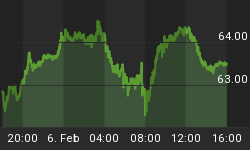Today's world can be summarized in two sentences:
Unless continuously fed with new credit, the global financial system will implode. And when confronted with this possibility, governments will always respond with new credit.
This has been true at least since the Long Term Capital Management collapse in 1998, and in the ensuing 14 years the global financial markets and the world's governments have been partners in a dance in which crisis elicits monetary ease, which ignites an asset bubble, which bursts and elicits a new flood of credit. After each sequence the total amount of debt -- and the system's fragility -- is even higher than before.
Through it all a few brave souls like Ron Paul have tried to stop the music and liquidate the debt, while other -- far more numerous -- authorities like New York Times columnist Paul Krugman have called for even more debt to produce higher inflation in order to liquidate the old debt. These worldviews -- sound money to which the world must adapt versus flexible money that adapts to the needs of the economy -- are mutually exclusive. Only one can win.
With all due respect to sound money advocates, there was never any doubt about the outcome. When voters suffer, governments armed with a printing press will always respond with easy money.
Today the debate ended. France has elected a socialist leader who will demand an end to austerity. The head of the European Central Bank has accepted that growth should henceforth take precedence over balanced budgets, and Fed chairman Ben Bernanke has made it clear that he's ready to step in with more easing if necessary. Elections in Greece, Ireland and elsewhere will solidify this consensus.
So now begins the next, purely-inflationary stage of the process, in which governments and central banks abandon whatever restraints they once recognized and vow to do whatever it takes to put people back to work in the here-and-now. That means tax cuts, even bigger deficits, continued low interest rates and aggressive asset purchase programs.
Whether this "works", i.e. whether the coming round of global devaluation produces higher employment with a minimum of instability, is an open question because we've never been here before.
No society in history has owed this much money, and the forces of global debt liquidation have never lost. Kondratieff Winter has never been bypassed and converted to Spring. But the world has never been armed with an unlimited printing press either. See The Long Wave Versus The Printing Press.
One thing that's certain is that today's tentative policies with one eye on deficits will soon be replaced by single-minded money printing, with a Krugman-esque goal of sustained 4% inflation. So now we know exactly what the world's governments want. The question is, can they get it?















